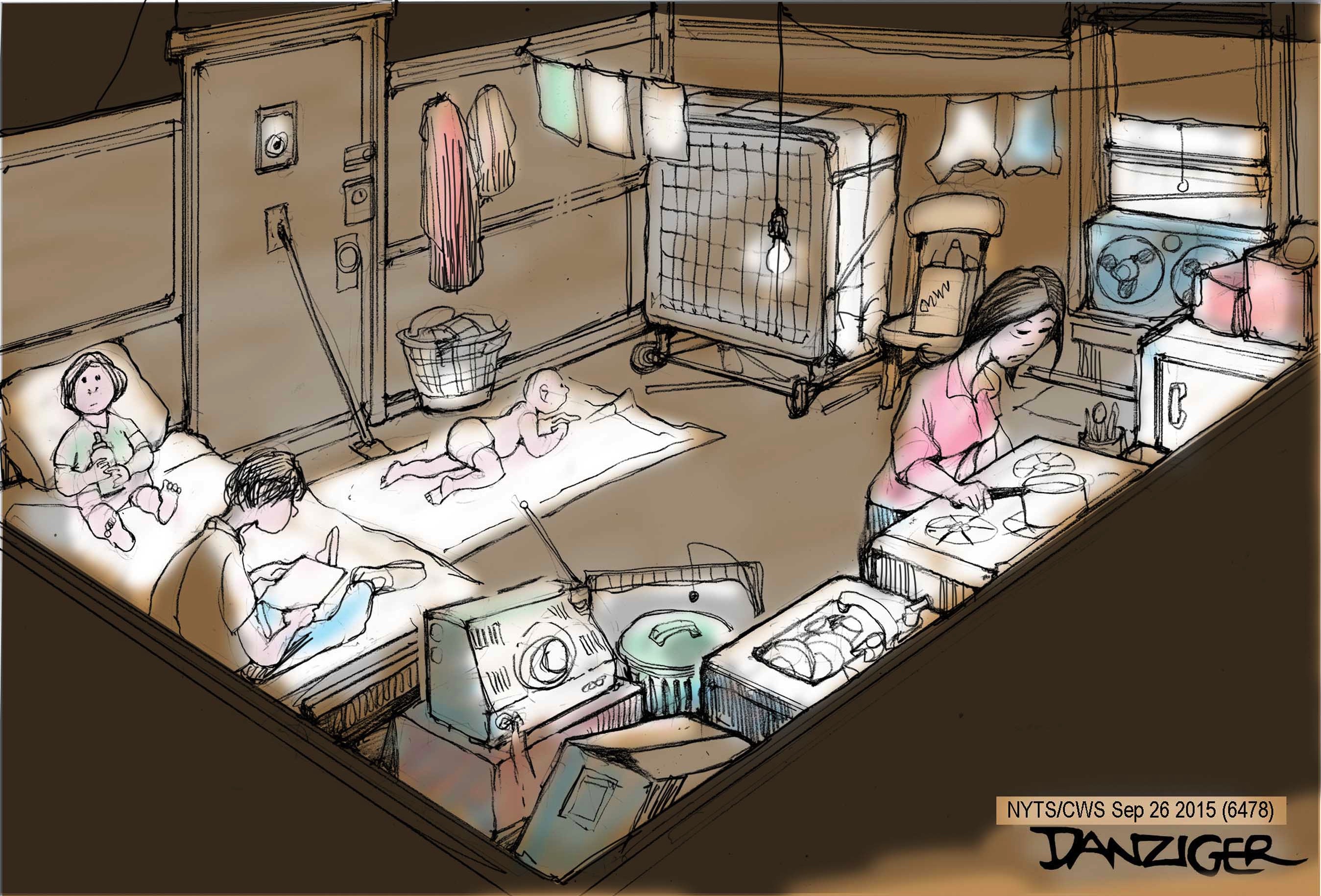Japan's newest bubble is in poverty. This may sound odd to anyone who's watched the Nikkei index go gangbusters for three years. But the stock market's rally to levels not seen since 1996 masks a not-so-unrelated surge in inequality.
Call it the underbelly of Abenomics, Prime Minister Shinzo Abe's economic revival program. The problem: structural reforms to raise incomes and competitiveness haven't panned out, while the central bank's historic liquidity injections are boosting stocks. The upshot: those owning lots of financial assets (Japan's "1 percent") are thriving under Abenomics at the expense of everyone else.
Recently, former Federal Reserve Chairman Ben Bernanke denied that quantitative easing increases inequality. Maybe not in the United States, but QE surely does in Japan, where even central bank concedes the rich-poor divide is widening. A Bank of Japan survey found that in 2015, single-member households with no financial assets hit 48 percent, the highest since 2007 (the last time Abe was prime minister). That's up from 39 percent in 2014. By contrast, households owning stocks, bonds and other assets saw their paper wealth surge on average to an all-time high of about $150,000.



